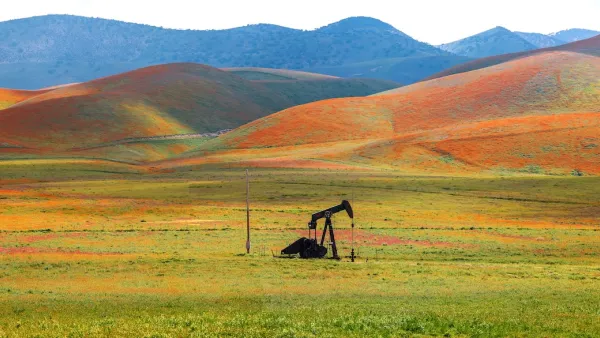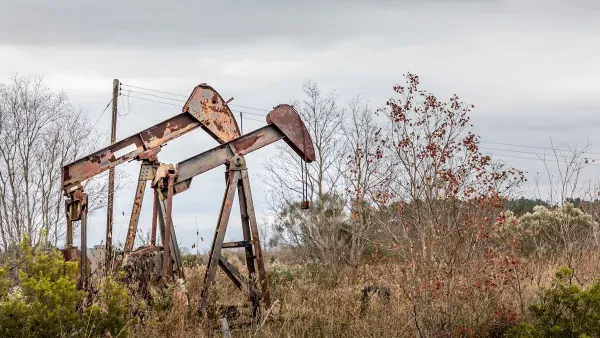Assembly Bill 1866 aims to address the health hazards caused by idle oil wells in low-income communities by enforcing stricter regulations on oil companies to accelerate well cleanup, despite significant opposition from the oil industry.

In January, a dramatic incident in Wilmington, Los Angeles, where oily water erupted from an oil well, underscored the ongoing health hazards faced by residents due to neighborhood oil drilling. Ashley Hernandez, an advocate for Communities for a Better Environment, reflects on growing up with persistent health issues such as asthma and cancer, attributed to toxic emissions from nearby wells. This predominantly low-income, Latino community is heavily impacted by over 2,300 oil wells, many of which are idle and leaking harmful pollutants.
As reported by Liza Gross, California Assembly Bill 1866 aims to address this issue by accelerating the cleanup of idle wells, especially those near homes and schools. The bill intends to move away from the previous "pay to idle" scheme and enforce stricter regulations on oil companies, requiring them to plug more wells annually. This legislative effort is crucial for protecting public health, as studies have shown that idle wells emit significant amounts of methane and other toxic gases.
Despite these efforts, the oil industry has been vigorously opposing such regulations. Industry representatives argue that many idle wells could be revived for production or repurposed for renewable energy storage, claiming that the new laws would impose prohibitive costs and potentially disrupt funding for well plugging. However, environmental health experts and lawmakers like Assemblymember Gregg Hart insist that the majority of these wells are outdated and pose severe risks, necessitating urgent remediation.
Community activists like Hernandez and other local organizations have been instrumental in pushing for these regulatory changes. Their efforts have led to significant local and statewide measures, such as the 3,200-foot buffer zone law to separate drilling operations from residential areas. However, the oil industry continues to challenge these regulations through lawsuits and referendums, demonstrating the ongoing battle between public health advocates and oil companies.
As the fight continues, there is a growing recognition of the environmental racism at play, with low-income communities and communities of color bearing the brunt of the pollution and health hazards from oil drilling. Activists remain determined to shut down harmful drilling sites and ensure that future generations do not suffer the same health issues. The struggle in Wilmington reflects a broader national issue, highlighting the urgent need for comprehensive solutions to protect vulnerable communities from the dangers of oil extraction.
FULL STORY: Battle to Prioritize Public Health over Oil Company Profits Heats Up

Analysis: Cybertruck Fatality Rate Far Exceeds That of Ford Pinto
The Tesla Cybertruck was recalled seven times last year.

National Parks Layoffs Will Cause Communities to Lose Billions
Thousands of essential park workers were laid off this week, just before the busy spring break season.

Retro-silient?: America’s First “Eco-burb,” The Woodlands Turns 50
A master-planned community north of Houston offers lessons on green infrastructure and resilient design, but falls short of its founder’s lofty affordability and walkability goals.

Test News Post 1
This is a summary

Analysis: Cybertruck Fatality Rate Far Exceeds That of Ford Pinto
The Tesla Cybertruck was recalled seven times last year.

Test News Headline 46
Test for the image on the front page.
Urban Design for Planners 1: Software Tools
This six-course series explores essential urban design concepts using open source software and equips planners with the tools they need to participate fully in the urban design process.
Planning for Universal Design
Learn the tools for implementing Universal Design in planning regulations.
EMC Planning Group, Inc.
Planetizen
Planetizen
Mpact (formerly Rail~Volution)
Great Falls Development Authority, Inc.
HUDs Office of Policy Development and Research
NYU Wagner Graduate School of Public Service




























